Kiwifruit, dung beetles and an authentic marae experience combined to set up an outstanding inaugural North island Tour for our Year 13 Agribusiness students.

With a desire to connect with some innovative Agribusinesses not available in the South Island, 20 students and two staff boarded the DUD - AKL Air New Zealand flight early Sunday morning and set off to explore the Central North Island and the East Coast towns of Tauranga and Te Puke.
Our first stop was Dung Beetle Innovations, founded and operated by Dr. Shaun Forgie, an environmental scientist from South Africa. Dr Forgie has been instrumental in importing a number of species of dung beetle into New Zealand to assist with improving the agricultural footprint. Dung beetles are 'environmental vacuum cleaners' that benefit the farmer in numerous ways, not least the improvement of soil aeration and drainage and the effective removal of animal faeces that give rise to diseases like flystrike and loss of land where the patties lie.
We were privileged to tour the breeding facility, view (and handle) these environmental legends whilst learning about the incredible benefits these beetles are capable of delivering to the agricultural sector and the New Zealand environment as a whole. Dr Forgie has also pledged a beetle package worth $6000 to the Agribusiness department which will be released on a McGlasghan community farm and form the basis for a real-life, ongoing investigation of beetle benefits on-farm for the Year 12 and 13 students each year! The data collected each year will form the basis of the Education for Sustainability assessment standard completed in Year 13.


After the tour, we boarded our bus and headed for the Te Puke, the Kiwifruit capital of New Zealand where we were welcomed onto Haraki Marae (by our hostess Tira Wai), our home for two nights as we studied, firsthand, the Kiwifruit industry. We enjoyed an authentic and full Marae experience which was interesting, educational, enjoyable and, at times, quite challenging.


First stop Tuesday morning was Zespri Headquarters in Mount Manganui where we toured the facility and enjoyed a presentation by the marketing manager. Our students also participated in the staff well-being initiative, 'Make your own smoothie' which the company sponsors for those who burn some calories on the exercise/smoothie maker bike.

We were all astounded that a permit to grow one hectare of Gold kiwifruit costs around $280, 000! All permits are payable to Zespri who monopolises the market on behalf of New Zealand, but the return for the farmer runs into tens of millions which offsets the permit investment. After the Zespri visit, we headed off to Tim King's orchard where the students got stuck into some farming tasks that included pruning, grafting and picking (which was enhanced by the fact that one could eat as many as you like straight off the vines!). Tim's enthusiasm and energy for horticulture was inspiring and uplifting in an agricultural environment that is often marred by negative media and public criticism.


We concluded a very busy day with a seminar on Kiwifruit genetics and the constant need for innovation to stay ahead of the pack. Plant and Food Research hosted us in their seminar room where we heard from scientists Murray Judd (who had a significant hand in saving our kiwifruit crops from PSA disease) and a geneticist who works on developing new varieties of the fruit.

The Marae kai was outstanding that evening and dinner was accompanied by our students and those from Te Puke performing their respective Hakas.
We departed Wednesday morning early for Hamilton to spend time with the St Paul's Collegiate Agribusiness students. Chris Foot, Melanie Simmons and the students treated us to a feast of activities including biltong and beer-making, dried fruit and cheese tasting. All these products were made by the students as examples of value-adding innovations to standard products.



After an outstanding lunch in St Paul's dining room, we set off for Auckland airport to return home. From dung beetles to dried fruit, the common theme was the same; innovation in Agribusiness is the key to future-proofing New Zealand's export economy, and innovative personnel are in high demand to facilitate that change.
For more information about applying for the Agribusiness programme and information about the new degree programme, click on the links below or contact Dr Craig Preston on craig.preston@mcglashan.school.nz or Mrs Suzanne Bishop on sbishop@columbacollege.school.nz
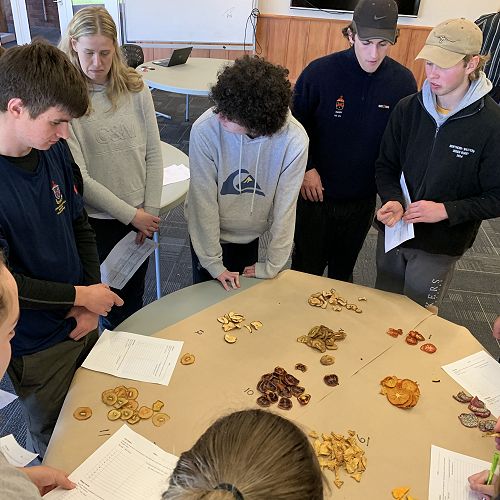
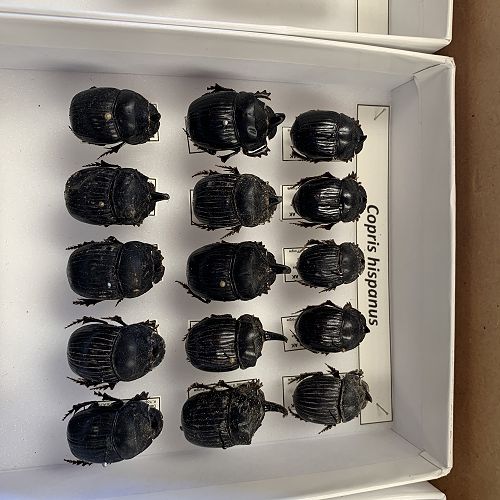
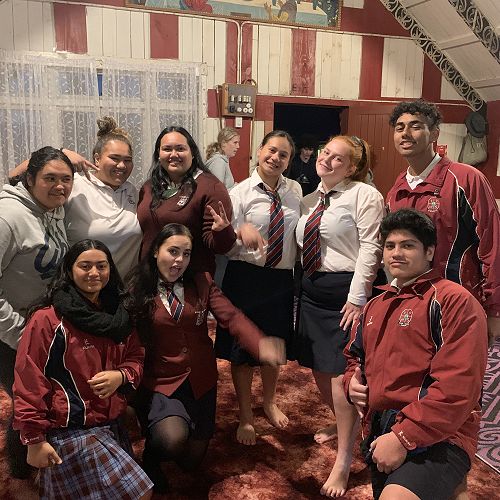
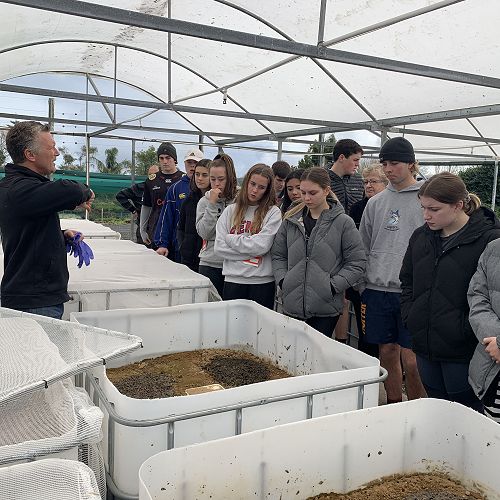
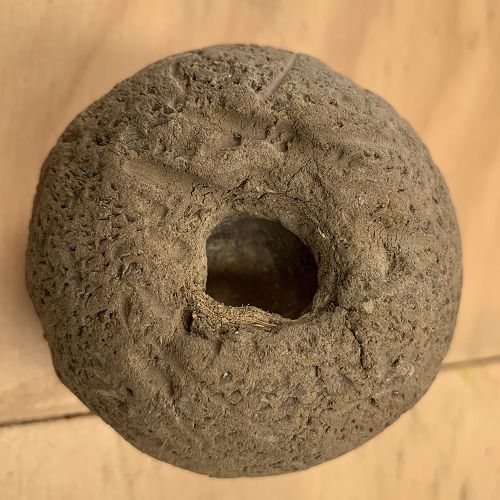
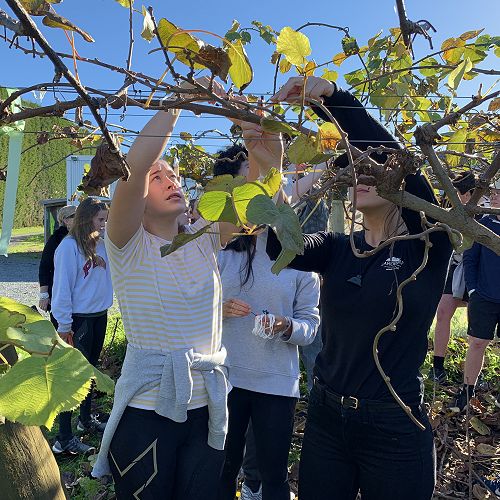
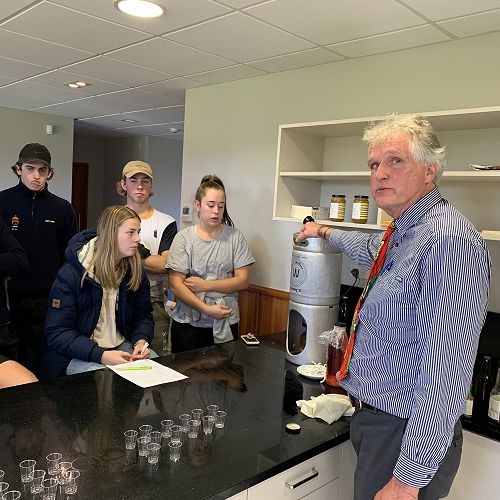
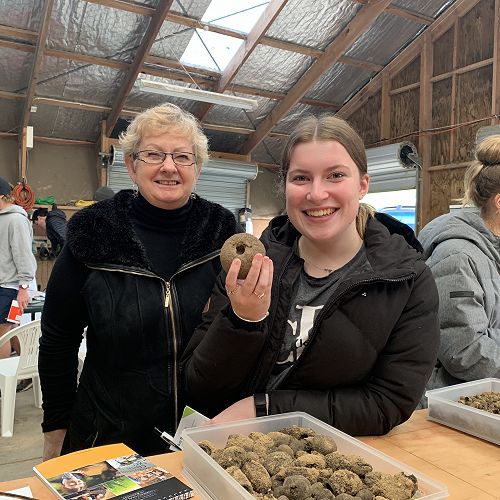
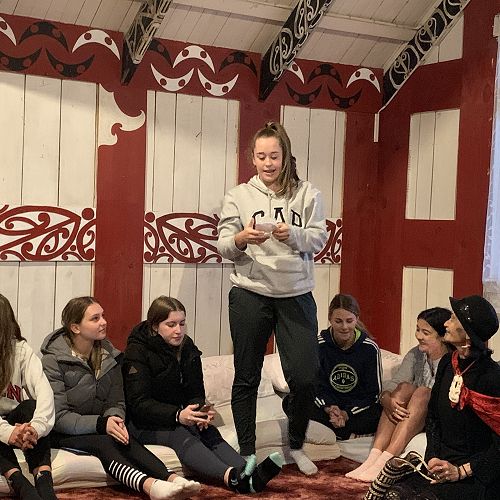
 Open Event Registration - Interested in enrolling?
Open Event Registration - Interested in enrolling? Employment opportunities - click if you're interested in working at McGlashan.
Employment opportunities - click if you're interested in working at McGlashan.